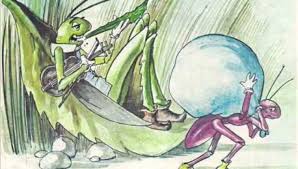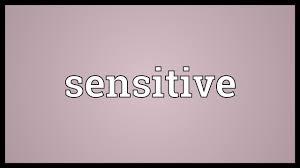Adolescence is typically characterized by magical thinking. “I can stay up until two in the morning playing Fortnite and still be present and attentive for my 9 o’clock pre-calculus class.“ Whereas responsible adults, those of the parenting persuasion in particular, know better. Grown-ups, having some familiarity with the past, acknowledge the possibility of the future. Retirement plans, grasshopper and ant, that sort of thing.

The transition from one state – -“unprotected sex? Yeah, that could work!”– – to the subsequent one – – “bring an umbrella” – – is not binary. Developmental psychologists research ages and stages. Good teachers don’t just mention that 7×9 is 63 one time and expect their students to remember their multiplication facts forever. Repetition is a thing. Nor was adulthood built in a day. The change in attitude, thought, and behavior is gradual.
We are charmed when adolescent starts showing insight into adult sensibilities. We admire “old souls,” kids who can converse with adults, kids who know what books are. I am dismayed—“outraged” is harder to spell— when parents inhibit children from adulting.
Jamie started sneaking alcohol at 14, smoking pot at 15. Her high school transcript looks like a chicken sneezed on it. She snuck out and prevaricated, graduated from pot to Xanax rather than from high school or college. When she noticed that she was in a hospital bed with her stomach pumped but little recollection of how she got there, she determined that perhaps a change was in order. Clean and sober now for five years, she has a graduate degree and works in a program for young adults in recovery. Jamie goes to meetings, works her steps, surrounds herself with other 20-somethings in abstaining from the substances that don’t work for them. Yet at her wedding last October, Jamie’s mother offered Jamie a glass of champagne.

I try to be sensitive. Truly, I try. And not every adult has to know what 7×9 is for example. But offering your daughter in recovery a glass of alcohol is significantly more stupid. Thinking that the answer to 7 x 9 is “Tuesday” or perhaps “Neptune” makes more sense than suggesting that Jamie drink alcohol at her wedding. What is Jamie’s mother thinking? That “one is too many, 100 is not enough“ is no secret. Is Jamie’s mother invested in keeping her daughter sick? Is Jamie’s mother cognitively impaired? Does Jamie’s mother not acknowledge that people are different, that some people can drink responsibly but that her daughter is not one of those people?

Believing that people in recovery can have a drink with impunity is right up there with believing that the earth is flat. The earth could be flat. But it isn’t.
My heart leaps up when I behold
A rainbow in the sky:
So was it when my life began;
So is it now I am a man;
So be it when I shall grow old,
Or let me die!
The Child is father of the Man;
And I could wish my days to be
Bound each to each by natural piety.
Wasn’t Wordsworth suggesting that the inexpressible joy of the natural world should stay with us as we age? There’s nothing in these nine lines about parents remaining children or trying to destroy the progress that their kids have made.

The goal of responsible parenting is to welcome adolescents into the world as it is, maybe even the world as it should be. Believing that our children in recovery are somehow different, on the other hand, is a desperate mistake. Encouraging our kids to believe in their “terminal uniqueness,” is criminal, can put them back in the hospital–or worse. Adults, by definition, need to stand up and be the adults.
Addendum: I sent a preliminary draft of this essay to “Jamie”then called her. I wanted to make sure that confidentiality was preserved, that she was comfortable with my sharing her story, that I had tweaked the personal details so that no one, not even her relatives could determine that she was indeed the subject of the narrative. “There’s no way anyone could recognize you,” I asked.
“No,” She replied. “That would require insight.”
As loving parents, let’s all recommit to having as much insight into our beloved children as we possibly can. Let’s give them what they need, help them understand they can’t have everything they want, and recognize them for who they are–whether or not they can have a glass of champagne.


